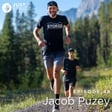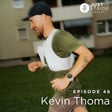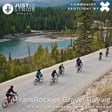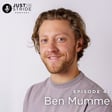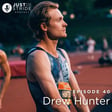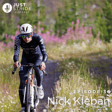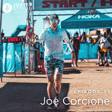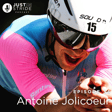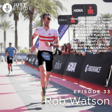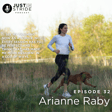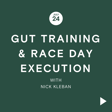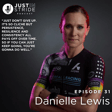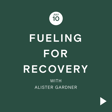
Ruedi Wild on Life as a Professional Triathlete, Lessons From the World Stage, and Redefining Performance
On today’s episode of Just In Stride, we welcome Ruedi Wild, a Swiss triathlete whose career has spanned the highest levels of competition. From toeing the line at the Olympics to racing on the world stage, Ruedi has built a reputation as both a fierce competitor and a thoughtful student of the sport.
In recent years, his focus has shifted toward understanding performance from the inside out. A key discovery around nutrition and sweat rate transformed not only his racing but also his outlook on training and recovery. It’s insights like these that Ruedi now shares with athletes looking to get the most out of themselves.
With decades of experience and a perspective shaped by both triumphs and challenges, Ruedi offers valuable lessons on what it takes to push limits and continue evolving as an athlete.
More on Ruedi:
-Ruedi Wild https://www.instagram.com/ruediwild/
-TriWild https://www.instagram.com/triwild_sweattest/
Ruedi is offering you 20 CHF / 20 EURO OFF the sweat test by visiting www.sweat-test.com
and entering code: Justinstride20
Offer valid until end of October 2025
-------
Offer from Xact Nutrition: This episode is presented by our friends at Xact Nutrition and they are offering you 15% OFF your order when you use the code JUSTINSTRIDE. So head to xactnutrition.com and fuel your goals today! Now shipping in Canada and the U.S.
Offer from Lagoon : This episode is also brought to you by Lagoon sleep pillow and they are offering you 15% OFF your order when you use the code STRIDE. Mininum purchase of $74 USD required. Limited to one use per customer.
Thanks for tuning in to the Just In Stride Podcast. I truly appreciate you taking the time to listen and I hope you enjoyed that conversation as much as I did. Please take a minute after this to rate and review our show on Apple Podcasts. With your feedback we’ll be able to make the show even better and it’ll help us reach new listeners too. You can also find us on Instagram @justinstridepod and YouTube @justinstridepod for all the latest episodes and updates. Glad you came along for the ride with Just In Stride!
